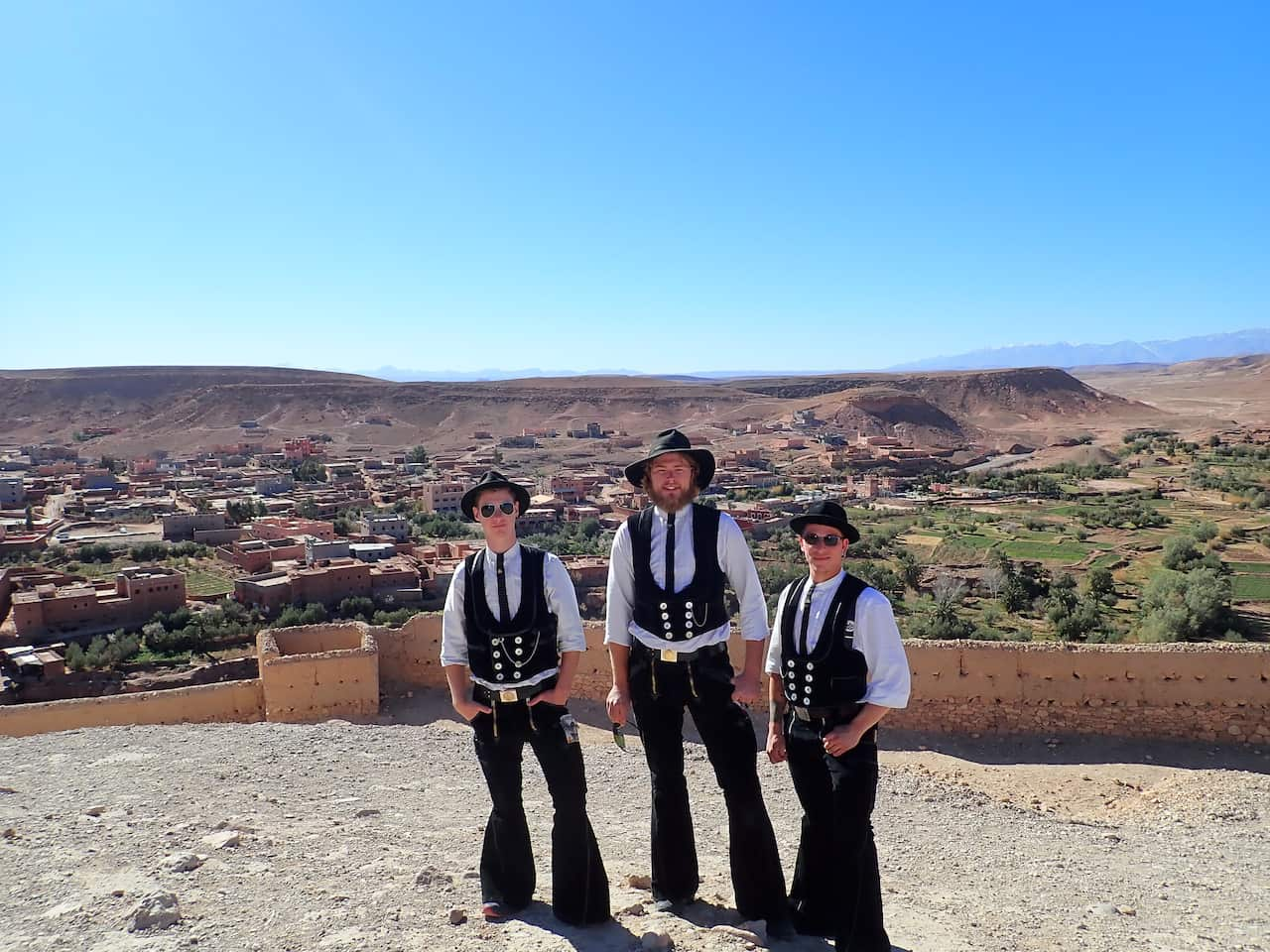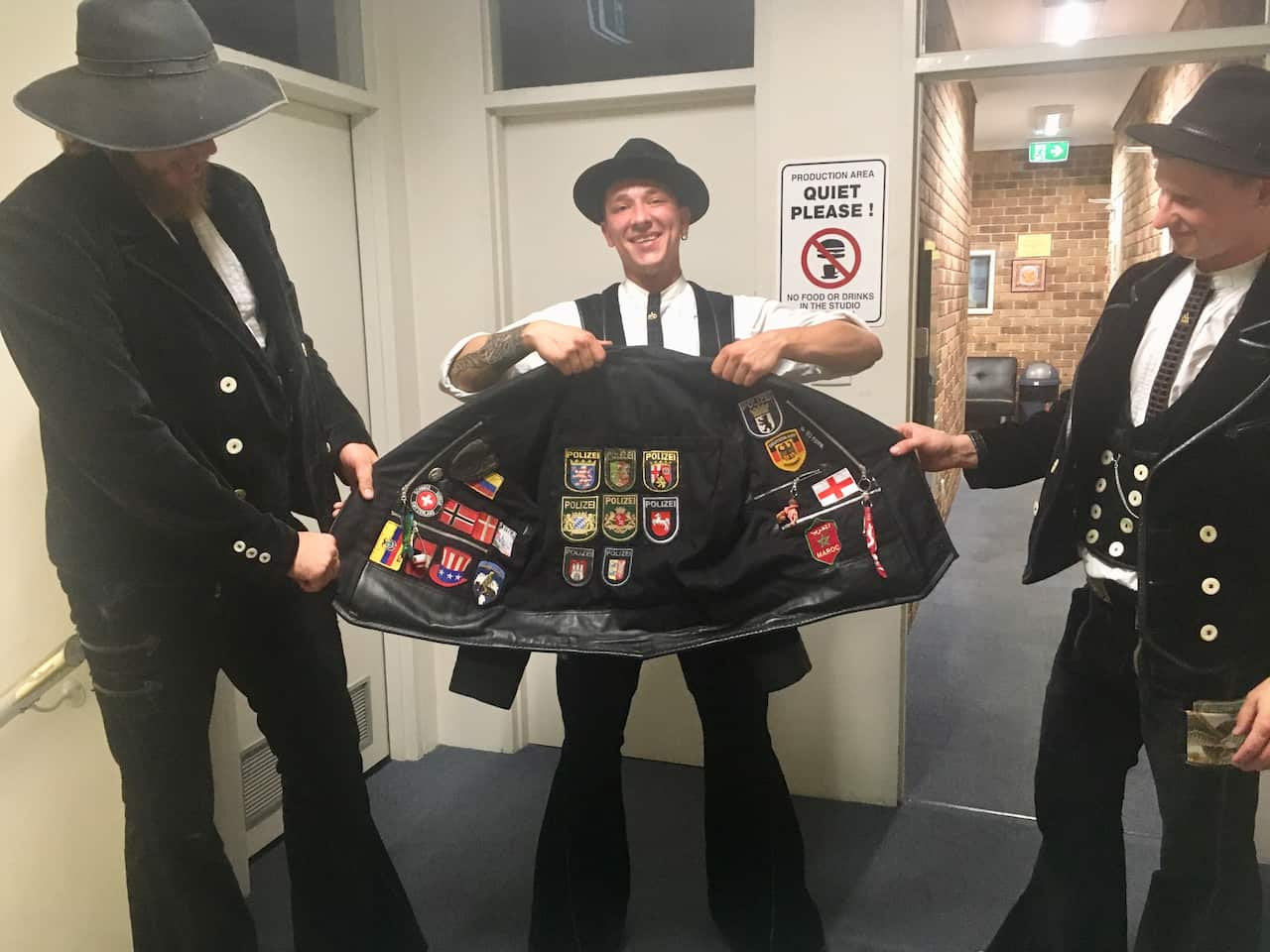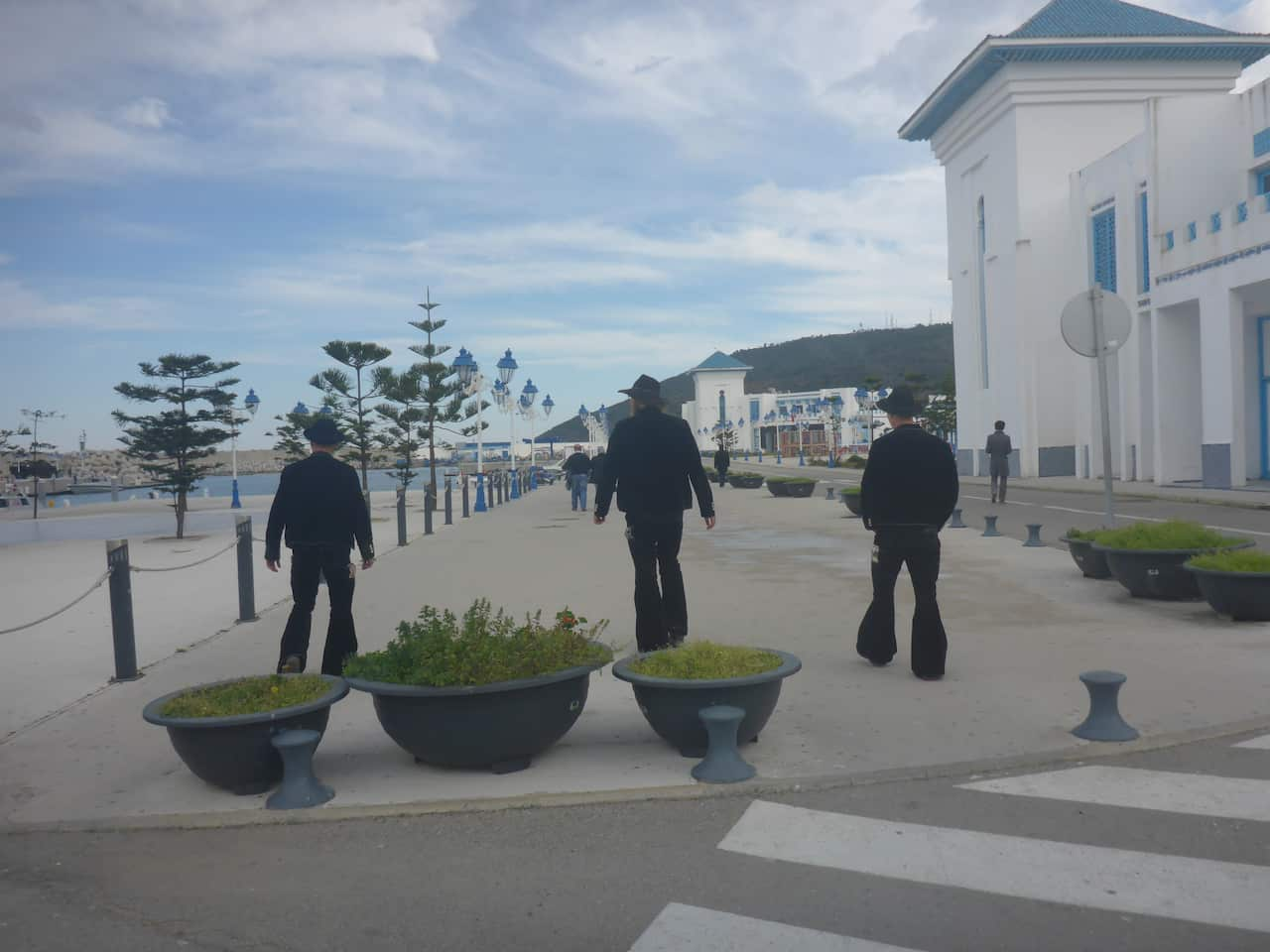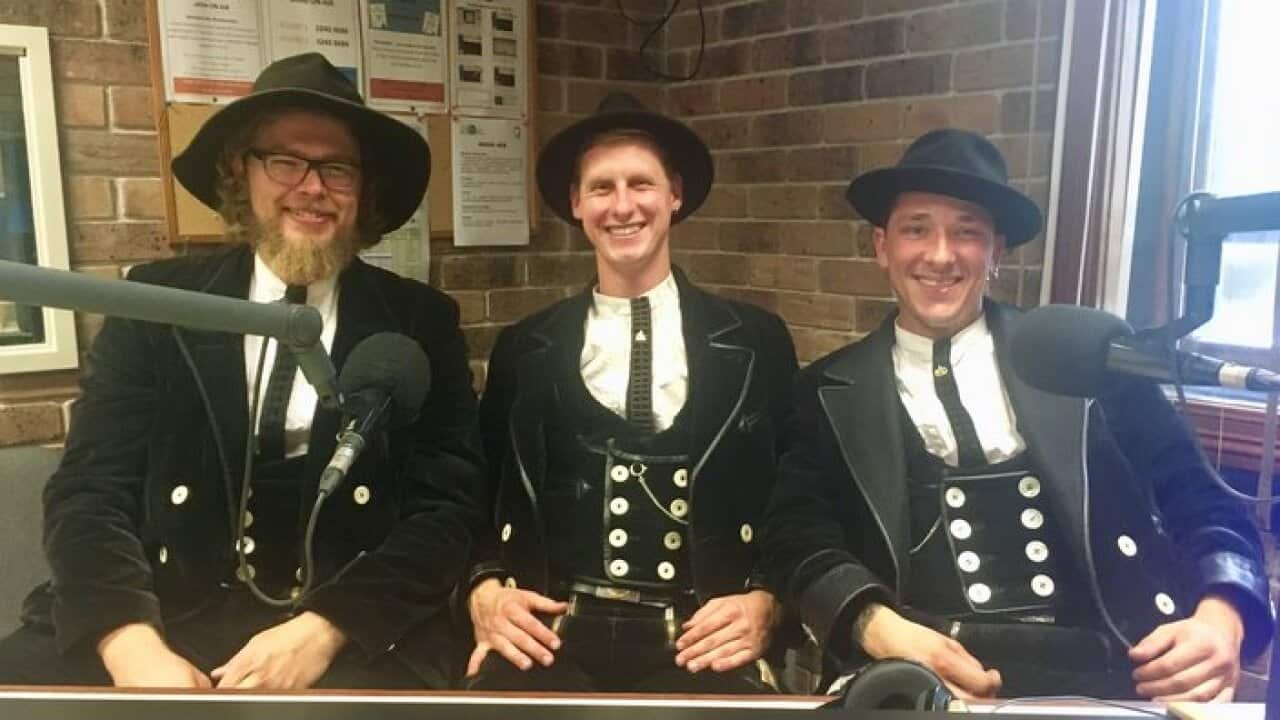Konrad, Eric and Lennard are three young men with work and travel visas. They’re nothing unusual at first sight.
But at second glance, the three Germans appear to be from a time gone by. Even in steaming hot and sometimes humid Australia weather, they walk in black and white outfits made of thick corduroy, including a vest, jacket and hat.
They are ‘waltzing’, living out a thousand-year-old German, Austrian and Swiss tradition known as the 'Auf der Walz' ('On the roll') that sees them banished from their homes for three years and one day with nothing but their bundles of clothes, walking sticks and skills as craftsmen. They must wander through the world, offering their services as they go.
This tradition is mostly unknown in Australia, but alive and well in central Europe. Curiously, though, the classic Australian song, Waltzing Matilda takes its wandering 'waltz' from this very tradition.
“The day I left my hometown by foot, I felt more and more freedom with every step I made,” Lennard, a traditional roofer, tells SBS German. “Like all the things that hold you back just fell off, literally step by step.” Konrad, a carpenter, felt a similar way when he started his walk nearly three years ago. He says he “felt like a little child, exploring new things, learning every day”.
Konrad, a carpenter, felt a similar way when he started his walk nearly three years ago. He says he “felt like a little child, exploring new things, learning every day”.

The three craftsmen pose for a picture in one of their many destinations Source: Supplied
For some leaving home is easy, while others struggle to leave their loving family behind.
Eric and his family were very sad when he decided, after finishing his apprenticeship as a carpenter, to go on ‘the roll’ (‘Walz’ in German). They knew he wouldn’t return for at least three years and one day, as the rules of the 1000-year-old ‘Wanderjahre’ (‘Journeyman years’) tradition states they must not encroach within 50km of their hometown during that time.
The hometown banishment is designed to make sure the handymen solve any issues they face by themselves and not to run home when the going gets tough.
Listen to the full interview with Konrad, Lennard and Eric in German at the top of this page
Another condition of this ‘Waltz’ is that one can only travel by foot or hitchhike. The exception there is if traveling from one point to another would take up more time than the Waltz itself - so luckily Konrad, Eric and Lennard were allowed to travel to Australia by plane.
All ‘righteous journeymen’ can be recognized by their distinctive clothes (‘Kluft’), which varies for different occupations. For example, those from the guild of carpenters wear a wide-brimmed hat, an eight-buttoned waistcoat, a six-buttoned jacket and flared pants, all made of black corduroy.
The buttons represent that the men work eight hours per day, six days a week. The outfit includes a collarless white shirt (‘Staude’) as well as a loose in the collar pinned black tie (‘Ehrbarkeit’) and the Charlottenburger bindle, ‘Charly’, an 80cm by 80cm cloth, in which the journeyman carries his sparse possessions of clothing, sleeping bag and tools. Konrad, Eric and Lennard say they wear their ‘Kluft’ every day with pride, even in hot and humid Queensland weather, where SBS German spoke with them.
Konrad, Eric and Lennard say they wear their ‘Kluft’ every day with pride, even in hot and humid Queensland weather, where SBS German spoke with them.

So much travel leaves one with plenty of souvenirs Source: Supplied
Looking closely, one will see that every journeyman also wears an earring. It is made of gold in order to be able to pay for a journeyman’s burial in the worst circumstances, god forbid. In the past, if a journeyman behaved improperly (for example, by engaging in theft), the earring would be torn from his earlobe, and then he would thus be marked as a ‘slap ear’.
Before Konrad, Eric and Lennard started their journey, they had to prove that they were unmarried, debt-free, younger than 30 and trade union members. In a world full of technology, they also had to swear off smartphones and laptops. So, how do they find a job?
“The best job interview I ever had was while I was walking on the side of a road and the boss of a nearby wood factory stopped his car next to me.” Eric tells SBS German, “He just said ‘Cabinetmaker?,’ I replied, ‘Yeah,’ and he answered briefly, ‘Tomorrow, eight o’clock.’”
In Germany, Switzerland and Austria this tradition is still common. When one meets men and women in their distinctive ‘Kluft’, you trust that they are honorable craftsmen. Eric, Konrad and Lennard say they are proud to keep the tradition alive. They each spent their first year of traveling in German-speaking countries, just to learn the rules, which are only passed on orally and to up-skill themselves in businesses which have a high reputation for their craftsmanship.
Eric, Konrad and Lennard say they are proud to keep the tradition alive. They each spent their first year of traveling in German-speaking countries, just to learn the rules, which are only passed on orally and to up-skill themselves in businesses which have a high reputation for their craftsmanship.

Without phones or laptops, Eric, Konrad and Lennard find most of their work on the road Source: Supplied
A common misunderstanding is that they work only for food and lodging, but in real life that might mean someone else loses their job, which could be a family’s income. As such, they will generally only work for the local rate.
So far the trio has traveled and worked in different countries including Morocco, Finland, Norway, France and even South American nations, as well as Australia. Sometimes, they did not even have a place to sleep or know where their next meal will come from, so it’s not only their skills as craftsmen that improve.
“I think traveling the world with nothing but your bare necessities and your skills teaches you a lot about life,” says Konrad. “That there will always be a way, that life goes on and that you can rely on yourself.”




